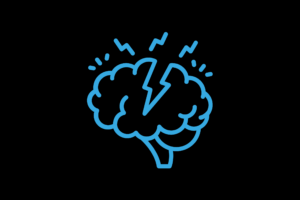Autism does not require any medication: it’s just a difference and not something to cure.
“I don’t suffer from autism, I suffer from idiots”
Times when medication could be needed
Managing another condition or difficulty
In some cases medication is prescribed by doctors to help manage a co-occurring condition like epilepsy, anxiety or depression. Medication may also be prescribed to help with a difficulty, like if you struggle with sleep. This is no different to how a non-autistic person might need medication to help them with something.
ADHD Medication
Dr Ned Halliwell describes ADHD as when “You have a Ferrari engine for a brain, but with bicycle brakes”. In some environments, you don’t need to use brakes and you can benefit from the strengths of having an ADHD brain, like energy, creativity and being able to hyperfocus on things you are interested in.
When you have ADHD, doing things you aren’t interested in and certain environments (like school) can be hard. Therefore, some people take the decision to have medication for ADHD. This can be likened to “strengthening the brakes” and it is OK to take medication for ADHD, if you and your doctor think it is helpful for you.
Vitamin supplements
It is common for autistic people to have a less varied diet. If this is the case it can be useful to take vitamin supplements to help you stay healthy – you can speak to a pharmacy or doctor to get advice on what would be suitable.
Illness
Most people get ill at some point or another and need to take medication prescribed by a doctor. This is the same whether you are autistic or not.
Is it trickier to take medication when you’re autistic?
Sometimes there might be additional challenges with medication for autistic people – although this is not true for everyone. Here are some reasons why taking medication could need a bit of extra planning, or extra discussions with your doctor:
Sensory differences – touch and taste
If you have higher sensitivity to taste, it could be difficult if you need to swallow flavoured medicines. When this is the case you may prefer to have a tablet/capsule to swallow. But if you have a higher sensitivity to touch, swallowing tablets or capsules can be really hard. It’s always helpful to discuss the different options with your doctor, to see if there is a medication type that is most suited to you.
Sensory differences – internal senses
When you take any medication, there’s always information on the instruction leaflet about possible side effects and how likely they are to occur. As some autistic people have higher sensitivity to their internal senses, you may find that you notice smaller changes in the way your body feels after taking medication, or feel the effects more strongly than others. If you are concerned at all then speak to your doctor – they will be able to help you understand whether the benefits of the medication outweigh any side effects you feel, or they might have an alternative medication that would suit you better.
Executive Functioning
You might need to use strategies to help you stay organised and remember to take your medication, especially if your executive functioning differences mean you might get distracted by something else. There are different tools you could use to help with this:
- Alarms on your phone/ pc – you can set an alarm for the times during the day when you need to take medication but if you’re focused in the middle of a task when the alarm sounds, it is a good idea to ‘snooze’ it. That way, it will keep reminding you to switch your attention to taking your medication.
- Pillboxes for tablets – they have different sections for days of the week and can be split up into times of the day too. Then if you have forgotten, you will see that the tablet is still in the box. Some pharmacies will prefill a pillbox for you.
- Apps – another way to help remember is to use task apps like Habitica. They encourage you to do tasks and then give you rewards, similar to if you have completed a quest in a video game!
Top tips for taking medications
- Always follow the instructions given by your doctor/pharmacist.
- If you don’t like the taste of your medicine, have a drink or snack close by to have straight afterwards.
- If you struggle to swallow tablets, ask your doctor/pharmacist if you are allowed to break them in half or even crush it up and mix it into something you like to eat, like yoghurt or a little bit of ice-cream. It might be OK for some medications but not others, so it is important to check first.
- If you are worried about the taste of a tablet/capsule, spread a tiny amount of something you like on it before popping it in your mouth – something like chocolate or cheese spread might help. Maybe this would work with a food you like!



